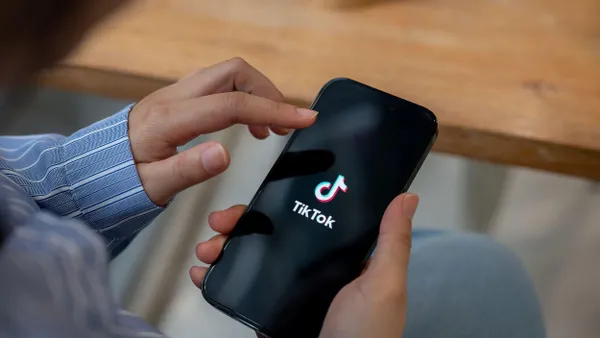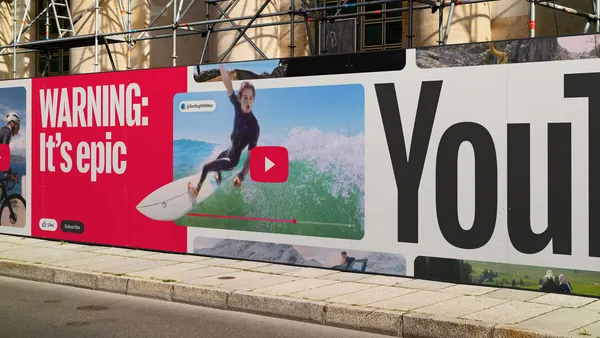Brief:
- KT, South Korea's largest telecommunications company, launched a mobile shopping service that uses augmented reality (AR) to show immersive views of products. The company's AR Market lets mobile shoppers view 360-degree AR videos of different products on smartphones and tablets, according to a statement.
- The company first introduced its AR tech for mobile shopping during the 2018 PyeongChang Winter Olympics in February. Its TV-based commerce unit launched the first commercial service of these solutions on July 16 through K Shopping's mobile app.
- KT plans to continue developing immersive shopping services by applying next-generation information and communication tech that feature AR, artificial intelligence (AI) and 3D modeling. KT also plans to add more partners for joint services down the road, according to the statement.
Insight:
KT's mobile shopping experience likely will provide more insights into how consumers respond to using AR technology on their mobile devices to shop for products. The beauty industry and home furnishing companies have been the earliest adopters of AR tech on mobile devices, especially after Apple and Google introduced software tools to help companies more easily create AR apps.
Many brands, especially in beauty, have beefed up their AR and mobile commerce capabilities in the past year. Estée Lauder added makeup training through AR in December, while brands and retailers from MAC Cosmetics to Macy's have brought "magic mirrors" into stores to help customers virtually test out products and see what they might look like on. Meanwhile, retailers like Wayfair and Ikea use similar tech to let mobile users see how furniture will look in their homes before buying it.
In the U.S., social media companies have led the way in pushing AR into the mainstream and getting consumers comfortable with the tech. Snapchat in April introduced a feature to let brands to combine e-commerce with AR. That followed parent company Snap's opening of an in-app e-commerce store to sell merchandise inspired by its iconic ghost corporate logo and digital characters. The arrival of AR shopping on the platform followed Instagram's expansion of shoppable posts into eight countries, pointing to the growing trend of mobile and social commerce. Pinterest is also betting on social shopping and has attracted big retailers like Home Depot for shoppable pins and immersive product views.
While AR is promising for e-commerce, there may be limits to what retailers can do with the technology in store settings. The technology doesn't add much value to the sales process for in-store shoppers who can actually see, touch, try on or taste products before making a purchase. Excess tech may even be a distraction, according to a study by ABI Research. AR is more likely to help e-commerce sites provide an interactive experience with online customers who are unable to see and touch physical products. Store employees are likely to use this kind of technology for a variety of in-store applications, such as managing front and back-of-store operations, looking up product information and handling inventories, per ABI.












